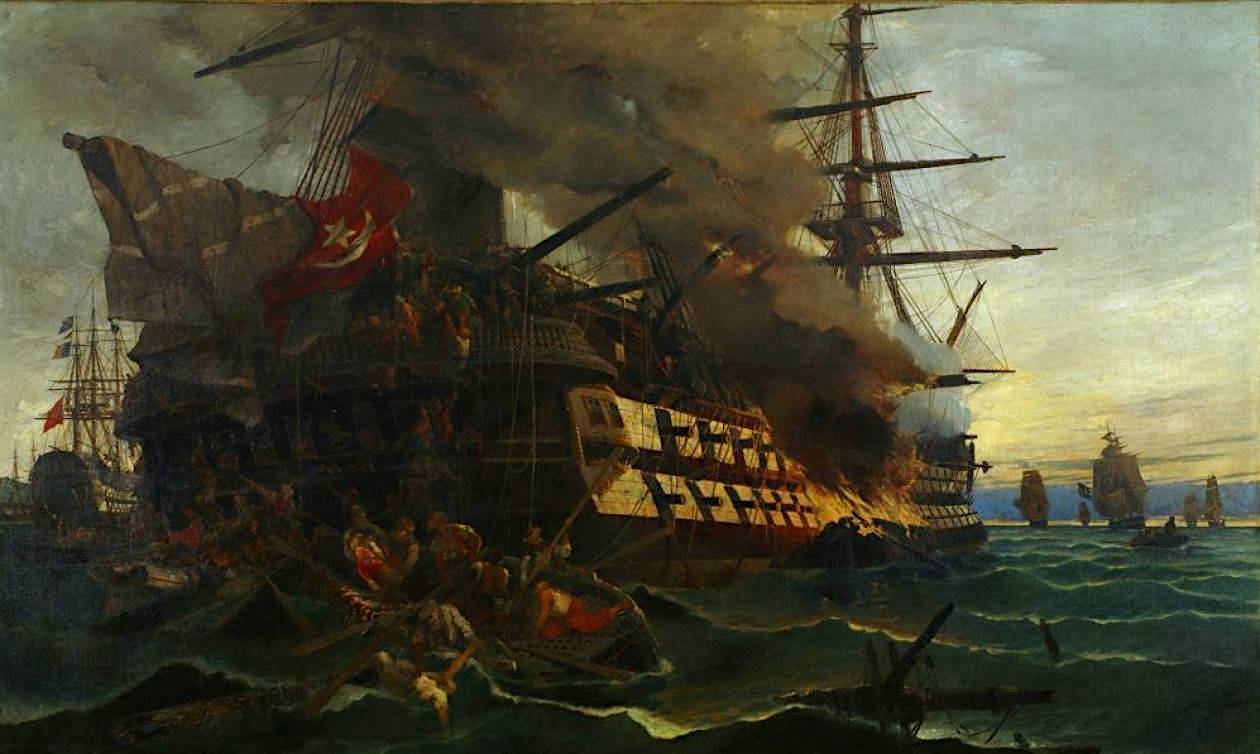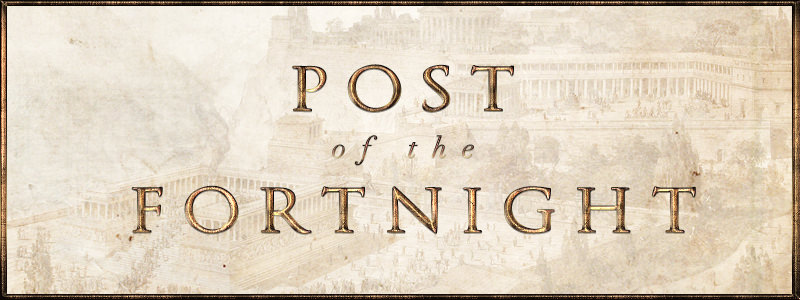 Introduction
Introduction
Yesterday,it was the "official" (albeit inaccurate) anniversary of the 1821 Greek Independence War, which eventually resulted into the creation of the modern nation-state of Greece, so I think that the date of 25th March, marking (not coincidentally) the Feast of the Annunciation, can serve as a useful stimulus to often a generally not particularly famous event of the Ottoman history. Generally speaking,affairs like these receive a disproportionate amount of attention by the interested parties, but unfortunately the professionalism of their interpretations is often undermined by a specific agenda, which does not necessarily concern the interests of the noble science of historiography. Inevitably, the Greek Revolution has not been an exception to the rule, which leads to the propagation of several myths or half-truths, which may serve the national narrative of Greece or Turkey, but do not correspond to historical reality. The question of the causes and pretexts of the uprising has been particularly affected by this tendency, which leads to bizarre explanations involving emotional hyperboles ("400 years slavery"), Soros-like conspiracy theories ("meddling of nefarious, foreign powers") or complete absurdities ("Devşirme",the practice of forcefully recruiting children and teenagers to the Janissary corps, which had been abolished more than one century before the events). In any case, before investigating further the subject, we firstly need to determine the nature of the Greek Revolution.
Myths
The most common claim is that it was a massive,ethnic uprising, where an entire nation, infuriated after years of tyranny rose against the foreign despot. Of course, it is obvious that the aforementioned approach is clearly influenced, in a remarkably anachronistic manner, from the perspective of the narrative of the nation-state. It offers said nation-state legitimacy, prestige, a solid justification for its precarious existence and an acceptable excuse for its failures. Secondly, there is the doubtlessly more fringe "leftist" theory of the affair being nothing less than a popular, proletarian revolution,where desperate peasants and sailors attempted to overthrow the establishment and install a juster society, where wealth and the means to produce it would be redistributed in an equal way. Elements of both ideas hold some truth, but, at least in what concerns its initial conception, the Greek Independence War was the embodiment ofa bourgeois nationalist revolution. Wealthy merchants were responsible for the initial financing, political leadership, ideological preparation and sparking of the revolt, while other segments of the society either joined later, pressed by the current circumstances, or played a relatively secondary role. Peasants largely remained cautious, because the instability threatened their prosperity, while in Eastern Europe, the vast majority of the population continued to identify itself on religious terms. After all, Christian Albanians(usually known as Arbanites), like the inhabitants of the island of Hydra or the brigands of Souli, were instrumental for the victory of the uprising, despite generally not being capable of even speaking Greek. The notion of national identity was widespread among the commercial elites, especially those living in central Europe, and the pupils of privately funded (by the previously mentioned merchants)schools, but it never succeeded in being endorsed by anything more than a small minority before late 19th century.
 Tiers état
Tiers état
The powerful class of Orthodox Christian merchants was firstly formed in the middle 17th century, when the constant naval warfare between the Ottoman Navy and a Catholic coalition steadily receded. Trade with Europe grew, especially thanks to the efforts of Izmir-based French merchants, while many Greek shipowners played the role of the middle-man, although their activities were not necessarily legal (the lines between state-sponsored commerce, smuggling and piracy were rather blurred). The Seven Years War and the Treaty of
Küçük Kaynarca also favoured the fortunes of the Greek traders, but the Napoleonic wars were of utmost importance. Due to the British blockade, the French were removed from the equation, which allowed the Greek "pirates" to take their place with enormous net profits. However, following the Congress of Vienna, harmony was restored and the Greeks lost their monopoly in central Mediterranean.As a result, 2nd-class merchants and shipowners watched their profits decline, which inevitably led to radicalisation. The increased unemployment of sailors also explains why the sailors of Hydra forced the wealthiest shipowners to join the uprising, despite being reasonably afraid of their fleet being destroyed during the hostilities. In conclusion, the urban elites, expatriated or not,aimed at establishing a modern centralised and liberal state, where international trade would prosper, unhindered by tolls, arbitrary political power and a fragile right to private ownership. That being said, despite their undeniably crucial role their contribution was not sufficient for the success of the revolt.
 Noblesse
Noblesse
In the mainland, inside the Christian community, political power was exercised by the local elite (kodjabashis, basically town notables),whose wealth was based primarily on agrarian estates and a small but vigorous number of craft workshops. They usually maintained cordial relations with their Muslim colleagues and Ottoman officials, but they could not enjoy the same power as the latter, while the local industry was somewhat harmed by the damaging consequences of the Serbian insurgency. That sort of "aristocracy" was also linked to the klephts and armatoi. The former were essentially brigands, while the latter were government-organised local militias tasked to eliminate banditry. Unsurprisingly, the demarcation lines between those two forces were not particularly clear, with many armatoloi joining the klephts and the opposite. These two groups, the armed militias and the rural elite, joined the uprising, providing the necessary military capital and political control, although sometimes their loyalty was far from guaranteed. They generally aspired to usurp the political power of the beys and confiscate the estates of the Muslim magnates. This means that their vision, an independent and yet fragmented Greece, ruled by provincial warlords,was in direct contradiction with the goals of the first group. Meanwhile, klephts and armatoloi alike did not particularly admire the measures taken by the reformist sultans Selim III and Mahmoud II, whose ambition involved the establishment of a modern regular armyand police force, which would render the services of armatoloi redundant and the activities of the klephts extremely lethal.
Clergé
Thirdly,we should also mention the views of the Greeks well-integrated into the administrative and ecclesiastical hierarchy of the Ottoman Empire. The majority of them were conservative and opposed any radical agitation. Especially the Ecumenical Patriarchate of Constantinople adamantly insisted on criticizing the revolutionary ideas, which sapped the Patriarch's privilege position inside the religious mosaic of the empire, while they also threatened to increase the prominence of national identity, in the education and the society, at the expense of religious affiliation and the prestige and communal power of the clergy. On the other hand, several priests,especially low-ranked ones, collaborated with the rebels, but without any significant role. Last and least, the most romantic ones dreamed of a reformed Ottoman Empire (or maybe of a restored Byzantine monarchy), where the Turkish dynasty and Islam would be replaced by a Hellenic family and the Orthodox Church. However, their views did not influence the events, presumably because of how surrealistic they were.

Causes and factors
From the above, I think it is clear that we cannot overestimate the importance of the cooperation between the merchants, the kodjabashisand the militias/bandits, despite their conflict of interests. The"bourgeoisie" composed the majority of the members of Philiki Etaireia (from the 911 members whose job we are aware of, 445 were merchants, 117 doctors, lawyers, students etc., 78 officers, 85 priests, 25 shipowners, 10 clerks, 7 craftsmen and only 8 farmers), a carbonari-like secret organisation, which planned the uprising. They also financed the military effort,determined and improved its ideological tools and established a very useful contact with the European courts and public opinion. Without the foreign loans and the military intervention of France, Great Britain and of course Russia (which even invaded the Ottoman Empire and almost reached the outskirts of the capital), the revolution would not have succeeded. Meanwhile, the merchant fleet of the shipowners harassed the Ottoman Navy and pretty much ruined the logistics of the armies ordered to suppress the insurgency. However,without the intervention of the rural elites and the armed units, the conspiring merchants, doctors, students and etc. would lack any local influence and army, while their efforts would continuously face either apathy or outright animosity. For example, the rebellion in Moldavia and Wallachia was easily crushed by the imperial army,because Υpsilantis, the Greek commander, quarreled and eventually executed Tudor Vladimirescu, his erstwhile ally and a Wallachian peasant rebel. Rather unsurprisingly, the Pandour militia previously led by Vladimirescu had no problem watching the Ottomans smashing the small insurgency of Greeks in the region.
Of course, many other factors helped the rebellion to survive enough, inorder to gather foreign assistance from the European monarchies,which considered Greece as a weaker and therefore more reliable and easily controlled ally in the Aegean Sea than the Sublime Porte. The mountainous terrain was excellent for the guerilla tactics of the Greek rebels, while the Ottoman Army and Navy were found in a remarkably terrible situation (perhaps even the worst in the entire Ottoman history), because the Janissary corps had declined into total inefficiency, while the Nizâm-ı Cedîd was not yet establishedor strong enough to participate in serious military expeditions.Meanwhile, the 1821-1823 war against Qajar Persia distracted theOttomans from the front in the Morea, but the most decisive factor proved to be Ali Pasha of Ioannina, a practically autonomous Ottoman governor. He's generally considered as the epitome of the Ayan phenomenon, local dynasts usurping political power from the feeble central authorities. He controlled Epirus and quickly clashed with the reforming policies of Mahmoud II. He was eventually defeated and executed by the imperial army, but in the meantime, he ensured thatno serious reinforcements would arrive in the Peloponnese, during the crucial first years.
 Epilogue
Epilogue
Inthe end, who benefited the most from the Greek Revolution? It is generally considered that the urban elites were the true victors, as their "progressive" vision eventually prevailed, as the Eyalet of Morea gradually evolved into the modern kingdom of Greece.They succeeded in manipulating the kodjabashis and the shipowners,through the threat of violence and the misleading promise of Russian help (which only materialised in the final years of the conflict, in the beginning, every monarchy was reflexively skeptical towards any revolutionary movement, even if its leaders openly rejected the message and secularism of the French Revolution). The kodjabashis disappeared, while the merchant fleet was immensely damage by the constant warfare. However, in my opinion, the truth is a bit more complicated: In the long term, the desires of the enlightened merchants may have been realised, but in its first steps, Greece was a highly fragmented state, where local warlords, especially in Mani,near Sparta, exercised effective control, in spite of the protests of the almost nonexistent regular army. Governors were murdered,insurgencies broke out in a regular manner, obscurantist monks called for a reactionary repetition of the Vendée, and the flagship of the Hellenic fleet was burned, together with another frigate, in an act of open dispute against the authority of the government. Meanwhile,most kodjabashis managed to maintain their power or adjusted to thenew circumstances. They integrated into the new power system, by assuming the role of court officials near the Bavarian ruler Otto I,Senators, parliamentary representatives, army and navy officers or even ministers, thus guaranteeing that the political and financial power of the Greek kingdom would continue to be shared and monopolised between a small oligarchy, composed of former Ottoman officials, rural notables and urban elites that studied in European universities.
To summarise, I would argue that the image of the Hellenic Kingdom of the 1830's reflected the balance of power between the primary forces behind the uprising, who had also orchestrated the course of the rebellion and the internal structure of its successor: warlords,shipowners, middle-to-upper bourgeoisie and kodjabashis. The quality of life of the peasants and sailors probably considerably improved neither in the short nor in the long term, while the mukhtars, the Ottoman officials, the Jewish communities and the Muslim peasantry were the real losers. once you achieve enough wins, but first you must be nominated in threads such as this one. And it works like this.










































































